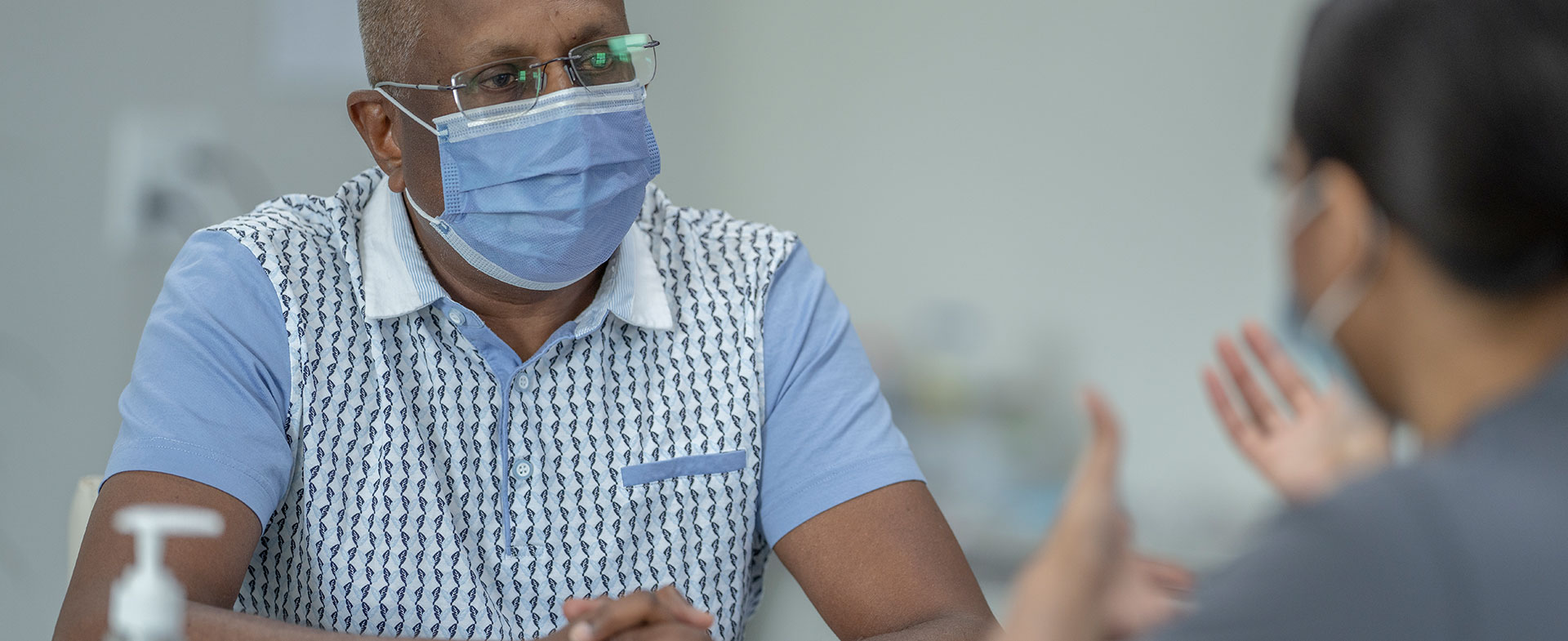Lung cancer is the deadliest cancer in the world. This is because the majority of lung cancers are caught at late stages, when they are too advanced to treat effectively.
If you are diagnosed with stage four lung cancer, you have less than a 1% chance of surviving five years, says Michael Simoff, M.D., a pulmonologist at Henry Ford Health. If you are diagnosed with stage three lung cancer, your five-year survival rate is about 20%. If you have stage two lung cancer, you have about a 60% chance of surviving five years. But if you catch lung cancer early—with a screening—at stage one, your five-year survival rate is 90%.
This is why the lung cancer screening guidelines are changing: not only does lung cancer screening work, but new, expanded guidelines will reach a broader, more inclusive population of patients. “Historically, in order to qualify for a lung cancer screening, you had to be between ages 55 and 80,” says Dr. Simoff. "You had to smoke a minimum of 30 pack years—meaning you had to smoke a pack a day for 30 years—and if you had quit, it had to be less than 15 years ago.
"But these guidelines leave out a large portion of high-risk patients. It's pretty well-known within the lung cancer community that a Black person or white woman who smokes a 20-pack-year (meaning they smoke a pack a day for 20 years) is equivalent in terms of risk to a white man who smokes a 30-pack-year. The former screening guidelines missed opportunities to find cancer early in these high-risk populations.”
Studies Show New Lung Cancer Screening Guidelines Are Effective
To qualify for lung cancer screenings—which consist of a yearly, low-dose CT scan—you now have to be age 50 instead of 55 and you have to smoke a 20-pack-year instead of a 30-pack-year. “Most people start smoking in their teens and early 20s, so even if you start smoking a pack a day at 20 years old, you’re already looking at being high-risk for lung cancer when you’re 40 years old,” says Dr. Simoff.
Studies have already shown these new guidelines are incredibly effective. Just last year, the U.S. Preventative Services Task Force reviewed ten years of data and found the updated lung cancer screening guidelines make a huge difference in early detection and survival.
Along with the new screening guidelines, education, follow-up and smoking cessation are hugely important to increasing the lung cancer survival rate. “We’ve incorporated education and smoking cessation into our care for all patients who get lung cancer screenings,” says Dr. Simoff. “The patients we educate are more likely to come back and get repeat screenings. If we can screen every patient who is at risk for lung cancer, and they keep coming back for follow-ups, we’ll catch lung cancer early. We will be able to improve the survival rate of lung cancer dramatically. I’m talking cure. And you never talk about lung cancer and cure in the same sentence.”
What About Marijuana And Vaping?
As of now, the lung cancer screening criteria does not include guidelines for those who vape or smoke marijuana. “Many people don’t think about lung cancer risks associated with marijuana or vaping, but that’s smoking, too,” says Dr. Simoff. “I’m sure we will find that vaping causes cancer, we just don’t have the studies yet. We need a few more years to collect the data. And we know that marijuana is also a problem, but because it has been illegal for so long, we haven’t been able to study it very well.
“There’s not a huge amount of science yet, but my rule of thumb is that if you smoke a joint a day, it’s equivalent to a pack of cigarettes,” he says. “Once we have the data, I’m sure lung cancer screening guidelines will eventually change.”
Subscribe to receive a weekly email of our latest articles.
If you or someone you love is at risk for developing lung cancer, learn more about lung cancer screening at Henry Ford, or talk to your doctor about whether it may be right for you.
Dr. Michael Simoff is a pulmonologist who sees patients at Henry Ford Hospital in Detroit and Henry Ford West Bloomfield Hospital.



